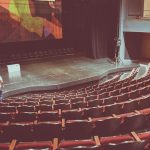Music education is more than just learning to play an instrument. It is a powerful tool for enhancing brain development and creativity, and is an essential component of a well-rounded education. By participating in music activities, students can develop their cognitive, motor, and emotional skills, and gain a deeper understanding of the world around them.
Enhancing Brain Development
Music education has been shown to have a positive impact on brain development, particularly in areas related to language, memory, and spatial-temporal skills. For example, playing a musical instrument requires the coordination of multiple motor skills, including the use of fine motor skills to play the instrument and the use of gross motor skills to maintain rhythm and beat. This can help students develop their motor skills and coordination, as well as their ability to process and retain information.
In addition, music education can also enhance language development. Singing songs and playing instruments can help students develop their ability to articulate words and sentences, improving their pronunciation and vocabulary skills. Furthermore, music can also help students develop their memory skills, as they learn to remember lyrics, melodies, and rhythms.
Fostering Creativity
Music education also plays a crucial role in fostering creativity. By participating in music activities, students are encouraged to express themselves and tap into their imagination, developing their creative skills and problem-solving abilities. Whether it’s composing their own music, arranging a song, or improvising during a performance, music education provides students with opportunities to be creative and innovative.
Incorporating Music Education into the Classroom
Music education can be incorporated into the classroom in a variety of ways. For example, teachers can use music to enhance students’ learning in other subjects, such as history or science, by incorporating songs, instrumentals, and musical scores into the material. In addition, teachers can also incorporate music into their daily routines, such as playing music during transitions or incorporating music into physical education activities.
Furthermore, teachers can collaborate with local music organizations to bring music education into the classroom. This can include guest speakers, field trips to concerts or music festivals, and hands-on workshops. These opportunities can provide students with exposure to a wide range of musical styles and genres, and can inspire them to pursue their own musical interests and passions.
Conclusion
Music education is a powerful tool for enhancing brain development and creativity, and is an essential component of a well-rounded education. By incorporating music education into the classroom, teachers can provide students with opportunities to develop their cognitive, motor, and emotional skills, and express their creativity and imagination. With the right support and resources, students can reach their full potential and prepare them for a successful future.


